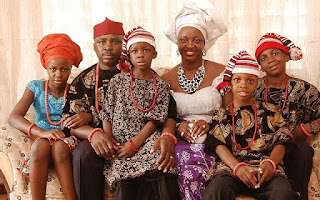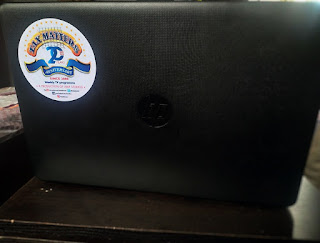I'm in love with the Igbo: Confessions of a Yoruba man
Sidenote: I wrote this in 2013. I still love Igbo people, despite... And also, LOL!
I think I just had an epiphany. I think I’m in love with the Igbo. Tracing all the way back to my childhood days, it really should have been more obvious to me before now, my love of the Igbo. And when I say ‘Igbo’, I do not mean my mother’s generalised classification of everyone who’s neither Hausa nor Yoruba (my Yoruba readers can relate).
My best friends in my earlier primary school days? Igbo. My best friend in secondary school days? Igbo. I had more Igbo friends, than I did Yoruba, in my university days (in a predominantly Yoruba school). I still have more Igbo friends now. Though I’ve never dated an Igbo girl, I find them very intriguing, in a sweet way (2020 me: Hahaha, you eventually dated two. One relationship ended in tears, the second was actually quite good. you both were just... well... 'unlucky', but you're still friends). My biggest crush (you know the kind that changes your life forever?) happened to be on an Igbo girl.
Most of my favourite public figures are Igbo; Jude Nnam, Emeka Nwokedi, Laz Ekwueme and Chimamanda Adichie. The University of Nigeria, Nsukka, despite the name, is practically synonymous with the Igbo people. For some vague reason (well, maybe not too vague, considering some of the people I’ve listed up there), I have this distant admiration for that school and sometimes find myself wishing I went to school there.
Need I say any more?
I realise more clearly now, my admiration for the Igbo. Think about it, after the Civil/Biafra War, virtually all the Igbos in this country had to start from scratch. Yet, today, we still have as many Igbo professors/academics, successful business people, public figures, brilliant entertainers; basically they’re shoulder-to-shoulder with every other major ethnic group in Nigeria.
The Igbo are a very resilient people. Perhaps it was the war, or they’ve always been like that. The average Igbo person has an uncanny knack for discerning what it takes to be successful and never shies away from doing what needs to be done.
Is it a wonder that, on the streets of Lagos, you hardly ever see an Igbo beggar? I don’t know if they have beggars in their villages or whether it’s against their culture, all I know is you’d be hard-pressed to find an Igbo beggar on the streets of Lagos.
Of course, my experience with the Igbo hasn’t been all sugar, spice and everything nice. I certainly do not have this dreamy, all-perfect image of the Igbo, lest my Yoruba folk start to think I’ve lost my identity. However, I will not give in to the over-generalised image of all Igbos being fraudulent, all humans are basically similar. I choose rather to share a less controversial experience I had with you:
I remember during my service year, I stayed in a predominantly Igbo Family House. In a house of an average of 25 people at any time, I was the only Yoruba person for most of my 1-year stay. The first day we arrived, I was gisting with a couple of guys from my batch; we were sharing our experiences from NYSC camp.
Then suddenly, with an obviously deliberate effort to ignore my presence they switched to Igbo. The same topic was discussed solely in Igbo for the remaining 20 or so minutes of that discussion! I was enraged. I found it very irritating, especially as I would never do the same if I was in their position. When they were done, they turned to me, asked me a question in Igbo, and pretended to be shocked by my exaggerated blank stare: “oh sorry, I forgot you’re not Igbo”. Being one to always speak my mind, I didn’t hesitate to give them a piece of it later that day. The story didn’t change much after that, though. I got into many arguments about this same issue throughout my stay. Some of them were never able to see it my way and I admit, sometimes I was very hostile. I have since learnt to be more accommodating.
I never learnt such behaviour from my parents. And I don’t think it’s any different in many educated Yoruba homes. We would always switch to only English once we realised that at least one non-Yoruba speaker was in our midst. It was perfectly normal for me to expect the same treatment.
I honestly thought I must hate the Igbo back then. But then without realising it, I began to forge friendships with more Igbo people. I also began to develop some interest in the language; some of my favourite choral songs are in Igbo. I mean, I barely know what Chineke C’ho Yon Nma means but I still love this:
I love listening to songs like this. I love to sing them as well.
It has begun to dawn on me that I would probably end up marrying an Igbo woman (2020 me: or Ibibio or Kalabari. So many of these 3 kind of women in my life).
I don’t know, maybe I’m just being too dreamy? Is it just me or does “I love you” sound better in Igbo than in any other language? I mean isn’t afurum gi nanya more romantic than mo feran re? Try it yourself, imagine saying those words to someone you love. Make sure to use overly expressive gesticulations to stress the strong syllables.
If you have no “someone you love” at the moment, maybe you should try using Chimamanda Adichie, or Genevieve Nnaji, or OC Ukeje as a muse? You’re feeling me now right?
Perhaps I’m just being over-excited. Perhaps all these might just be a case of the grass being greener, so to speak. I’m however not to be misunderstood. I love my own people and I think we have our strengths too but, I can’t help but admit it, I’m so in love with the Igbo.
What do you think? Am I just babbling or am I making sense?
Image: Jumia Food



Comments
Post a Comment